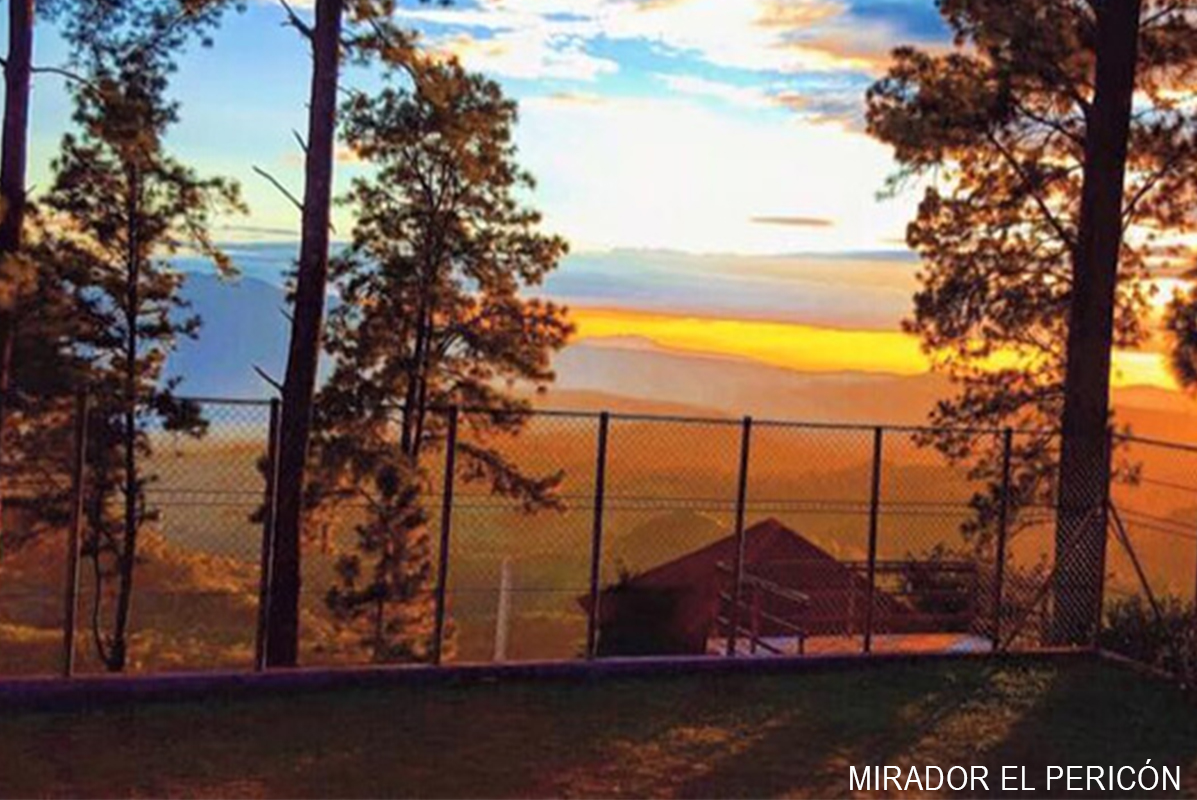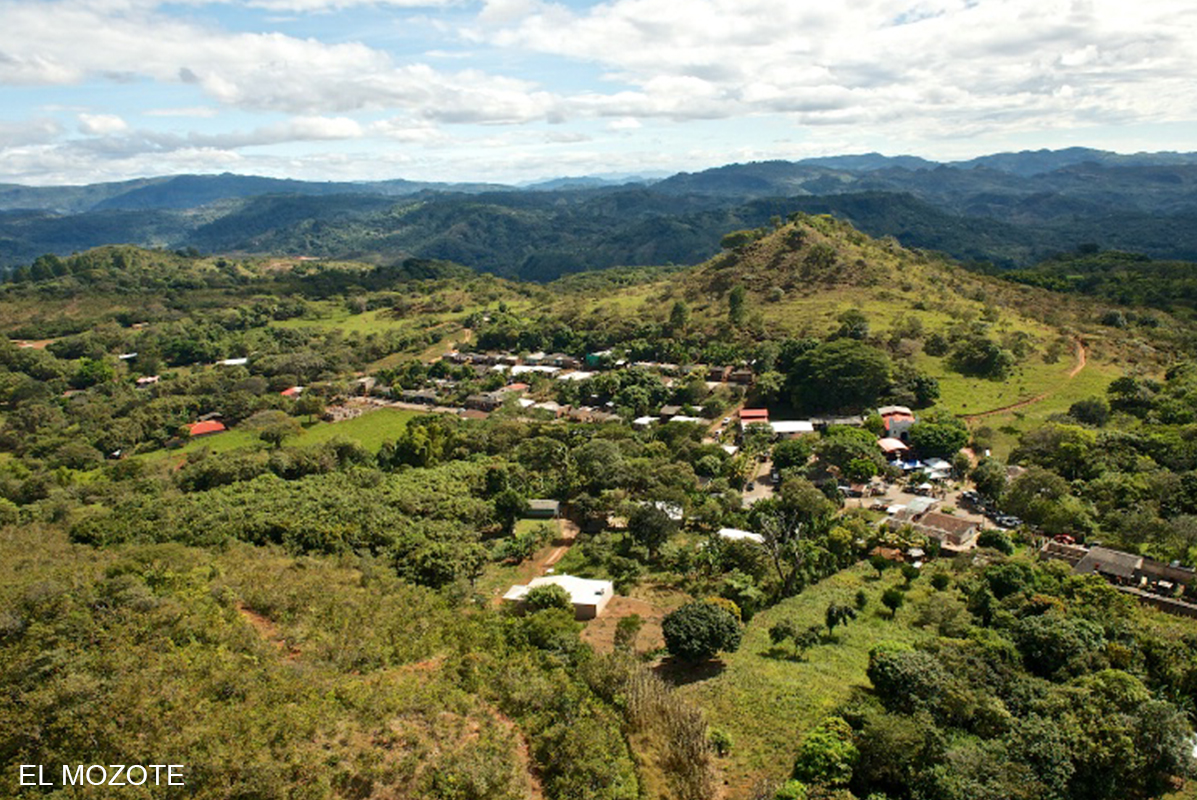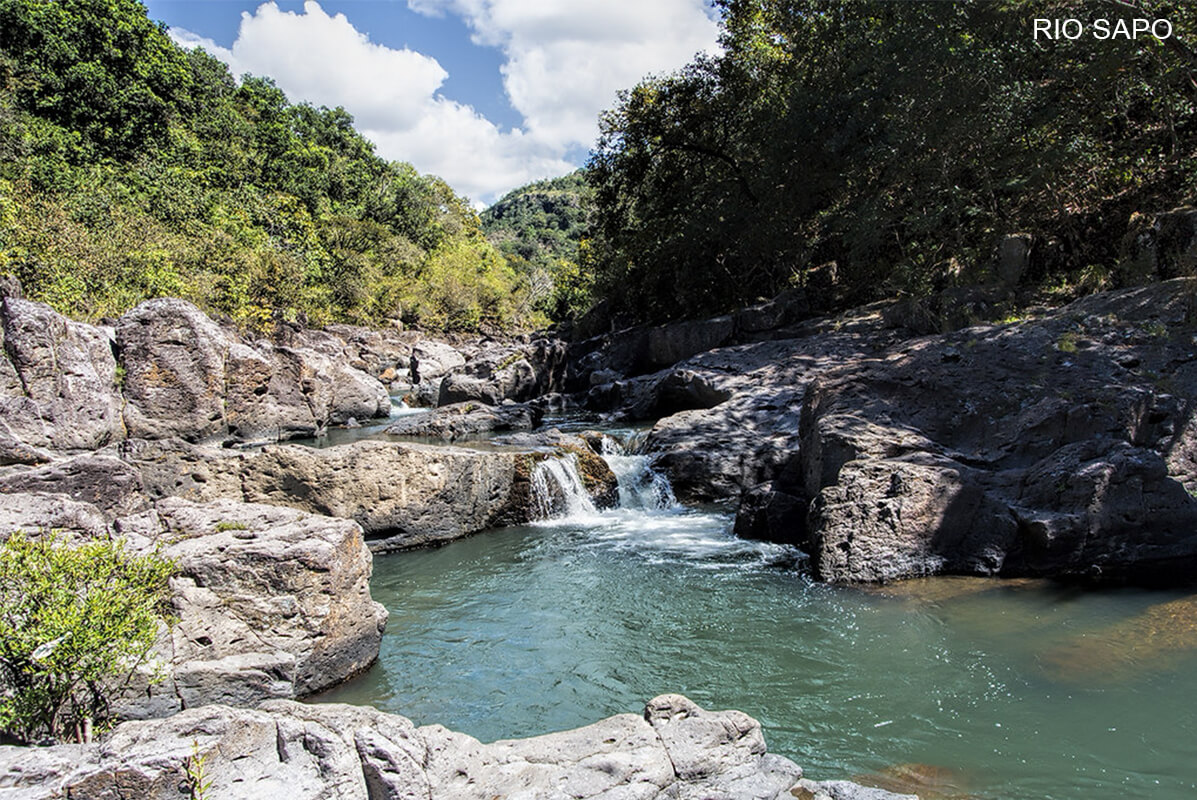ROUTE OF PEACE
CACAOPERA – PERQUIN
CACAOPERA – PERQUIN
On this route you can perceive the serenity and stillness of a very beautiful mountainous area, with many natural tourist resources such as rivers, hills, caves, scenic spots, in addition to knowing the history of the civil war of the 80s told by the protagonists and embodied in the Museum of the Revolution.
WHAT TO VISIT?
Click edit button to change this text.
Perquín, the scene of the civil conflict in El Salvador and considered the capital of the revolutionary movement, is now a haven of peace and harmony, located at a height of 1230 meters above sea level that provides a cool and serene climate, where you can find charming mountain hostels. Among its attractions are: The Museum of the Revolution, Cerro Perquín, and its Historical Cultural Tour to the guerrilla camp.
Arambala is a Villa that has a beautiful church, hardworking and friendly people, in this region is the Sapo River, whose turquoise waters provide an impressive setting in contact with the nature of the area. The El Mozote memorial site is an important place of pilgrimage in honor of martyrs of the armed conflict, the El Peról Waterfall has waterfalls with depths for all ages, the Llano El Muerto an impressive ideal place for camping and outdoor activities .
Cacaopera is an important pre-Hispanic city, with an old church, where the old “Dance of the Plumed” is celebrated in January from 13 to 17 in honor of Mother Earth and joy is expressed for the year Again, in this place is the Winakirika Museum whose name means “what of our People” in Kakawira language, The Torola River bathes its territory and offers many places like pools and waterfalls to enjoy in harmony with nature.
This area has charming towns and villages in the area such as Torola, Meanguera, Jocoaitique, El Rosario, where you can appreciate the rurality and ancestral heritage of Lenca origin, which make this place a covetable stay for foreign and national visitors, with A very typical gastronomy of the area, this route is made up of about 8 villages, who jealously guard their Lencas traditions and roots with pride, offer attractive events and cultural dances without comparison, paths properly marked with interpretive infrastructures of cultural support for visitors.



